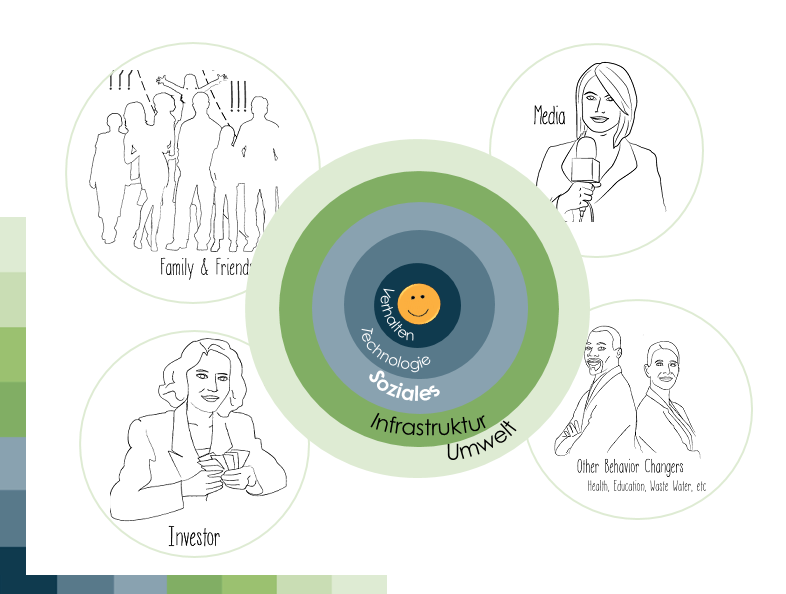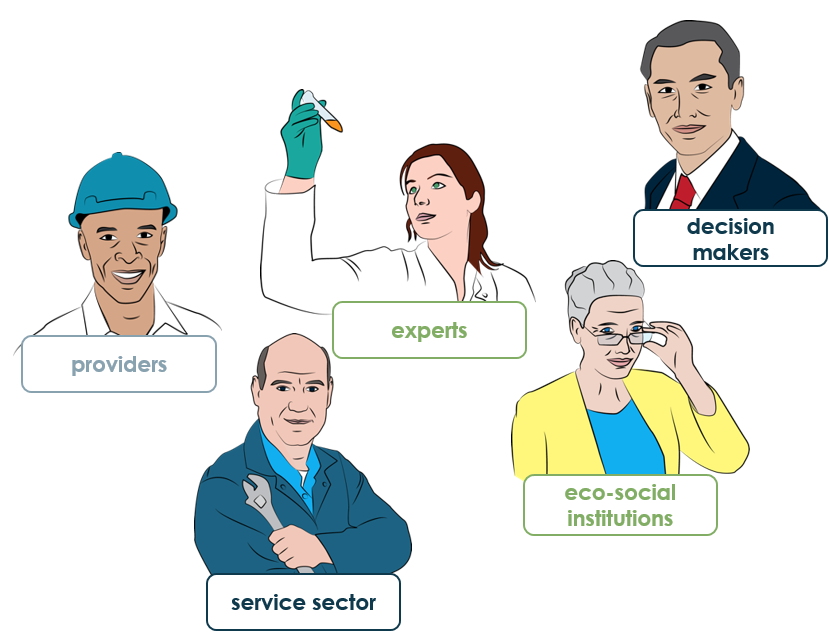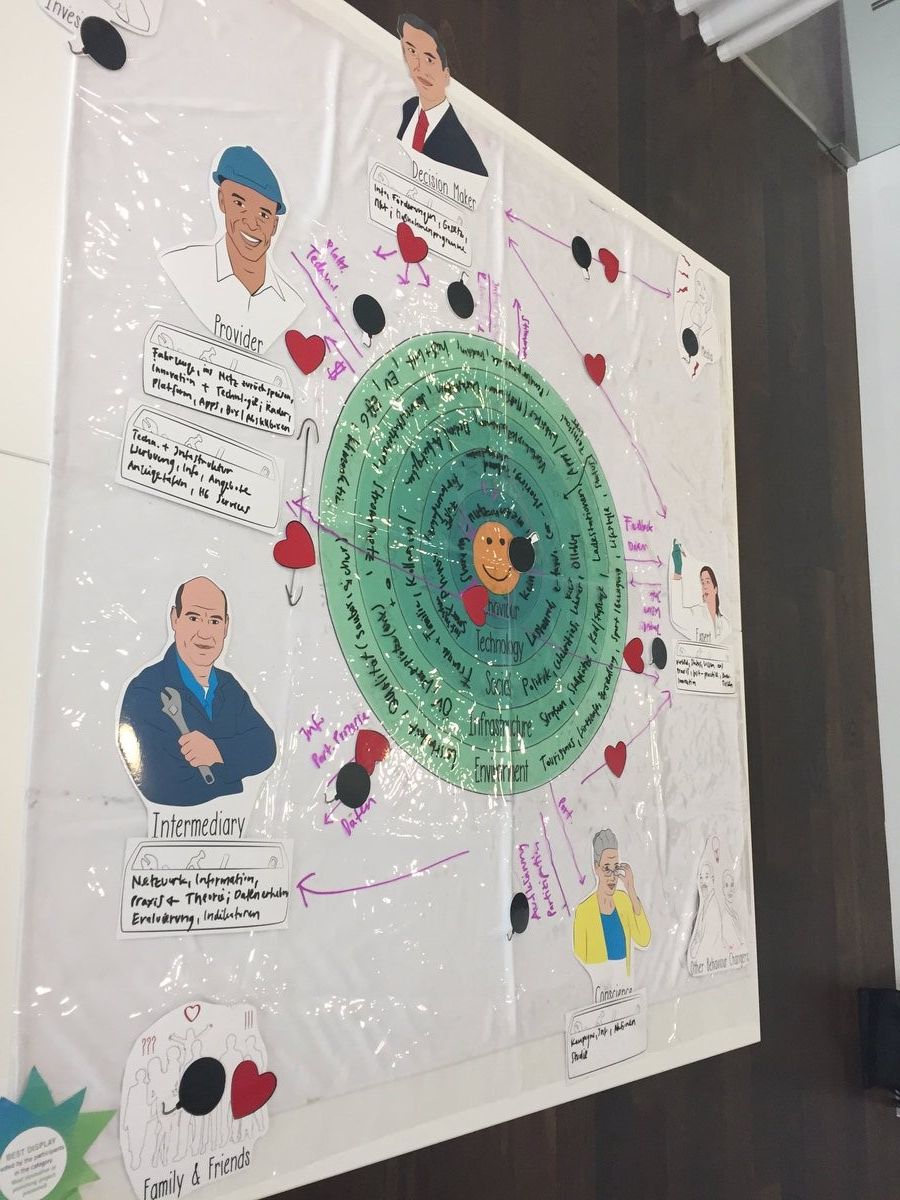IEA DSM Task 24: Behaviour Change in DSM – Helping the Behaviour Changers (Working period 2015-2017)
Short Description
The results from both phases of Task 24 led us conclude that the reason why energy efficiency is still 'the greatest market failure of our time' is because most current approaches are still based on a rather technocratic understanding of energy end user behaviour – with technology, market forces or energy supply dictating interventions geared at behaviour change. Previous DSM policies are usually applied to the individual or material level to change the energy behaviour. However, international studies show that sustainable changes in the energy behaviour can only be achieved by taking into account the social level. Holistic considerations, in which the person from whom the need for energy emanates and which ultimately also consumes the energy, is, however, hardly there.
Therefore, task 24 focussed on the end users of energy. Their behaviour is influenced by a wide range of factors (technology, social surrounding, infrastructure, environment):
Besides, the so-called behaviour changers have big influence on the end users. Those are (1) decision makers, (2) energy economy/technologies, (3), experts (research, consulting), (4) eco-social institutions (e.g. NGOs) and the (5) service sector. The behaviour changers 1-3 were always part of DSM-policies, the groups 4 and 5 have not been considered so far; but are important success factors in the sense of the social dimension.
The aim of the Task 24 extension was to (better) connect the behaviour changers internationally and nationally and to provide them tools and competences, which enable them to affect the behaviour of end users in an energy efficient manner. Therefore, methods were tested, which support the behaviour changers to trigger a societal change in the sense of energy behaviour.
After identifying the top DSM-issues in Austria (1. Acceptation of DSM-interventions in the frame of the Austrian law on energy efficiency; 2. DSM-interventions in office buildings; 3. DSM-interventions to accelerate e-mobility) an assessment method was elaborated for DSM-interventions in the frame of the Austrian law on energy efficiency. Especially companies, which so far implemented behaviour change measures driven by image reasons or "we do something for our employees" criticise that the law on energy efficiency creates pressure to only generate verifiable energy savings in kWh. The effects of behaviour change measures, which are hardly quantifiable, are consequently barely demanded. Therefore, the core issue of this task in Austria was the inclusion of behavioural DSM-interventions in the methods-document ("Methodendokument").
The practical examples of Task 24 show a variety of possible interventions, which have no application in the methods-document. For the further spread of behavioural DSM-interventions, the approval of these interventions is essential. Therefore, an evaluation scheme for DSM-interventions was developed and submitted to the monitoring institution in order to enable a future approval of DSM measures.
Participants
Austria, Ireland, New-Zealand, Netherlands, Sweden
Contact Address
Teresa Kallsperger MSc
Grazer Energieagentur GmbH
Kaiserfeldgasse 13
8010 Graz
E-Mail: kallsperger@grazer-ea.at
Tel.: +43 316/811 848-14



